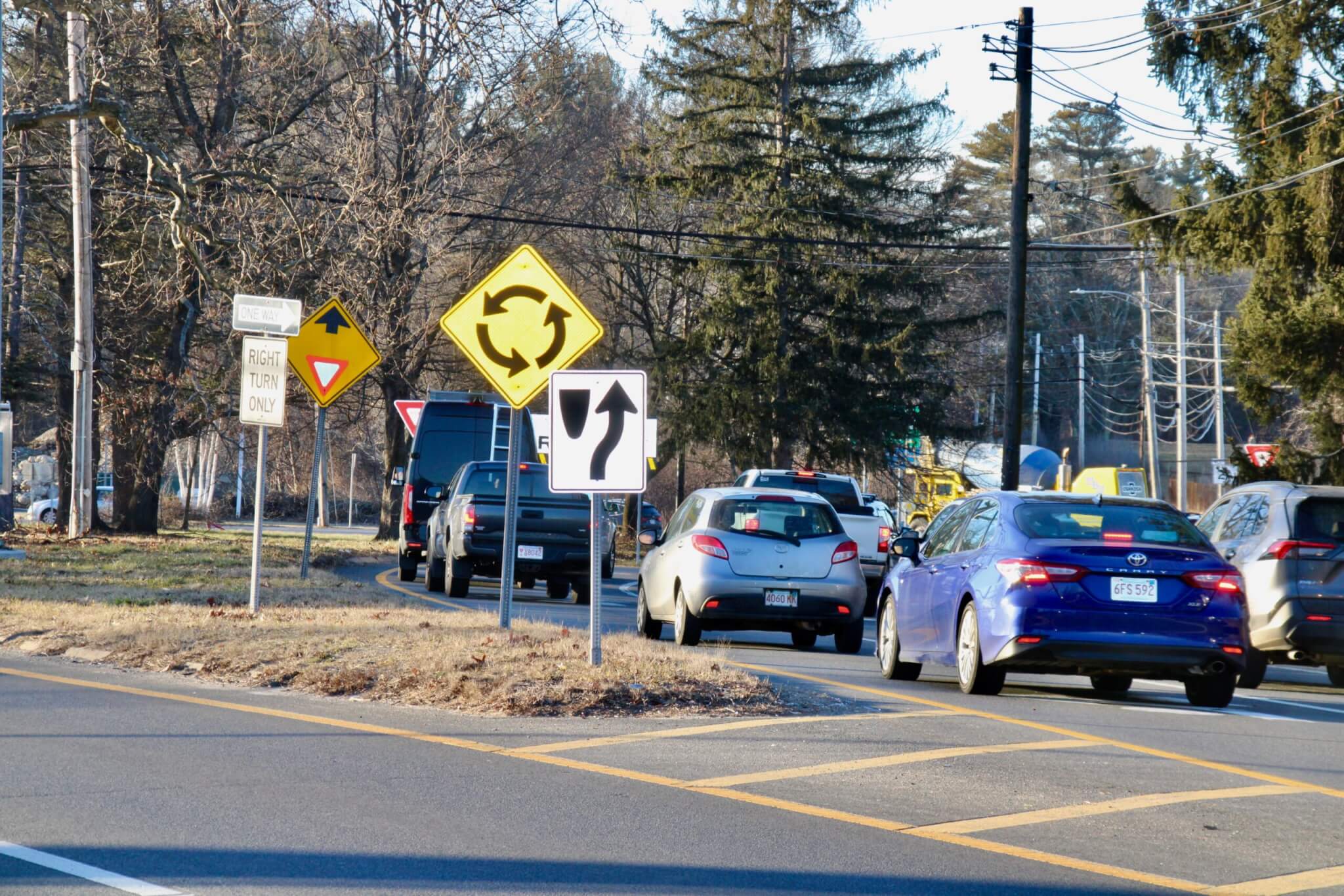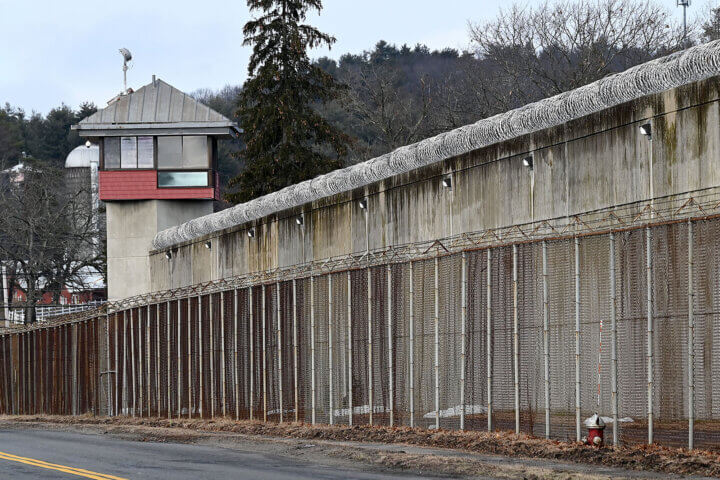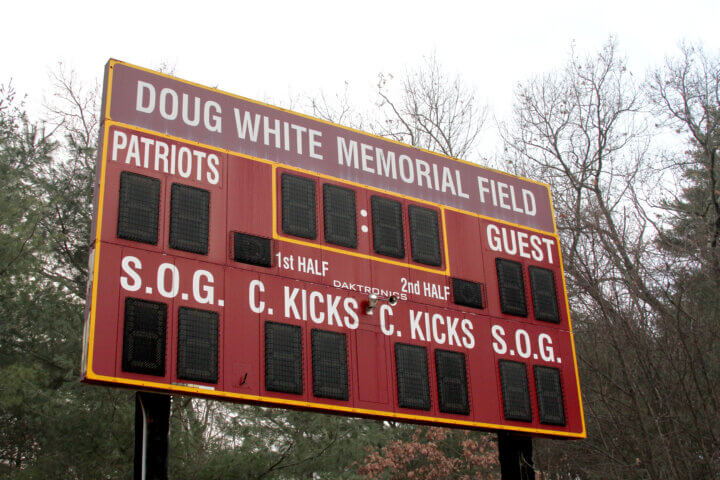The release of a study by the Massachusetts Department of Transportation on the Route 2 Corridor, coinciding with the announced planned closing of MCI-Concord, offers a chance to re-envision the safety and efficiency of the strife-inducing Concord Rotary.
MassDOT on Tuesday night released details of a more than a year-long study on the corridor, identifyng dangerous intersetions and proposed improvements. While the rotary was identified as an area especially in need of change, presenters acknowledged the possible closure of MCI-Concord was on no one’s radar.
It’s an “incredibly exciting opportunity,” said Rep. Simon Cataldo, D-Concord. “Everyone has a harrowing story about the rotary.”
Officials hope the study findings will include improvements in accessibility at the rotary, which currently lacks pedestrian crossings.
“Route 2 is a huge barrier for anyone who’s moving around Concord or would like to move around Concord without a car,” said Laura Davis, chair of the town’s Transportation Advisory Committee.
“This Route 2 Corridor Study is an opportunity to address the traffic and safety problems at the rotary that frustrate everyone in the region, as well as the safety and comfort of pedestrians and cyclists, and folks in wheelchairs and all users crossing at all of the places where our local roads cross Route 2,” Davis said.
With study findings not yet released at press time, redesign plans are still up in the air. Widening highways is a popular way of increasing car capacity, but it takes space from pedestrians and bike riders.
“Induced demand is something that I feel like a lot more people need to understand, especially as we talk about Route 2,” said Davis. “Anytime that we increase the capacity of a highway, it induces more people to drive, and so anytime that a highway is widened, it will cause there to be more traffic throughout the region.”
In a survey conducted by the town’s Transportation Advisory Committee as a part of the broader state mobility study, “one of the things that a lot of people highlighted during that survey was concerns about the rotary, whether that be safety and or traffic,” Davis said.
“Bottom line, by far the rotary is the worst,” said Rep. Carmine Gentile, D-Sudbury, after being presented with the findings of the study in November that found that the rotary is the biggest cause of congestion on the corridor.
The MassDOT study comes at the same time as the announced closure of MCI-Concord and plans for new commercial developments in the region. The land on which the prison sits can change the landscape of the rotary.
“There’s a lot of change happening along the Route 2 Corridor in Concord,” said Davis. “And with the prison closing, it really offers us an opportunity to think about the transportation system we want to build for the next 50 years and think about it differently than we have in the past.”
It’s a “wonderful opportunity for the transportation of Concord,” Gentile said.
“With the prison closing, the real estate can be used to alleviate the problems that the rotary presents.”






